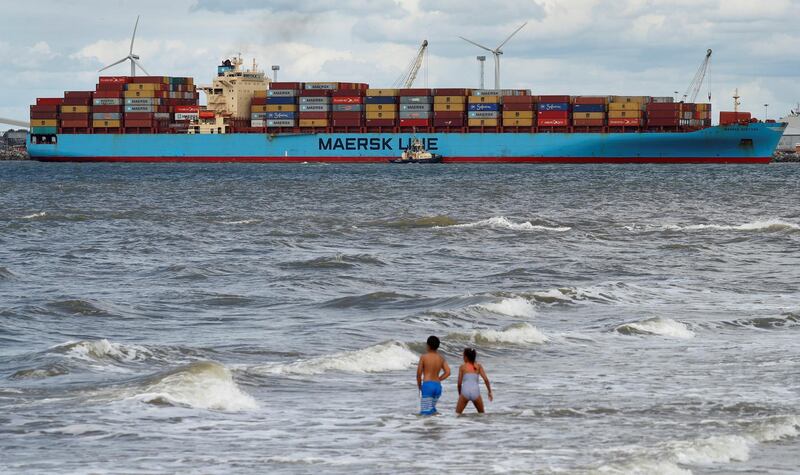The US economy will be hit many times harder than the rest of the world by an escalating global trade war, according the chief executive of AP Moller-Maersk.
Soren Skou, who runs the world’s biggest shipping company from Copenhagen, said the fallout of the current protectionist wave “could easily end up being bigger in the US”. Tariffs could slow global annual trade growth by 0.1 to 0.3 per cent, although for the US the effect could be “perhaps 3 or 4 per cent”, he said at a presentation at Maersk’s headquarters. “And that would definitely not be good.”

The company transports about 20 per cent of the world’s seaborne consumer goods, putting it in a unique position to gauge the fallout of tariffs on trade flows. Maersk has in the past broken with its culture of steering clear of any political debate to criticise the trade policies of US President Donald Trump.
The Trump administration has argued that its tariffs are addressing an imbalance in trade relations between China and much of the rest of the globe and that the measures will support US industry. Mr Trump has tweeted that the US economy is doing “better than ever” and highlighted strong gross domestic product data and declines in the unemployment rate.
Maersk focuses on trade flows between Europe and Asia, and so far its industry hasn’t been directly hurt by tariffs. Demand actually grew 4 per cent in the second quarter. But Mr Skou says that may change if the US starts targeting consumer goods.
“The first thing the American importers would do if tariffs are put on Chinese consumer goods would be to buy in Vietnam, in Indonesia or elsewhere in Asia,” Mr Skou said. “Big US consumer brands like Nike produce in all of Asia, not just in one country, so there will be a substitution effect.”
The US put duties on US$34 billion (Dh124.9m) of Chinese goods last month, citing unfair trade practices by the world’s second-biggest economy. The Trump administration has said it will impose tariffs on a further $16bn on August 23, and even signalled it won’t shy away from targeting the entire $500bn in Chinese exports to the US.
_______________
Read more:
Foreign investors' eyes light up as China's equity market beckons
Time to take profits on US tech stock double-bubble
_______________
“The other factor is that there’s a lot of stuff that’s now imported into the US that just isn’t produced anywhere within the US,” Mr Skou said. “You can’t get Nike sneakers or iPhones that are produced in the US. So it will end up being pushed on to the consumer.”
Maersk is in the middle of a historic shift away from a conglomerate structure that had included a substantial energy business to focus instead exclusively on transport, primarily the shipping of containers that carry traded goods.
On Friday, the company announced it is spinning off its oil-drilling business, which Bloomberg Intelligence has estimated is worth about $4.4bn. Maersk last year agreed to sell its oil-and-gas business to Total. It still needs to offload a supply service unit that analysts in February said might fetch about $600 million.






